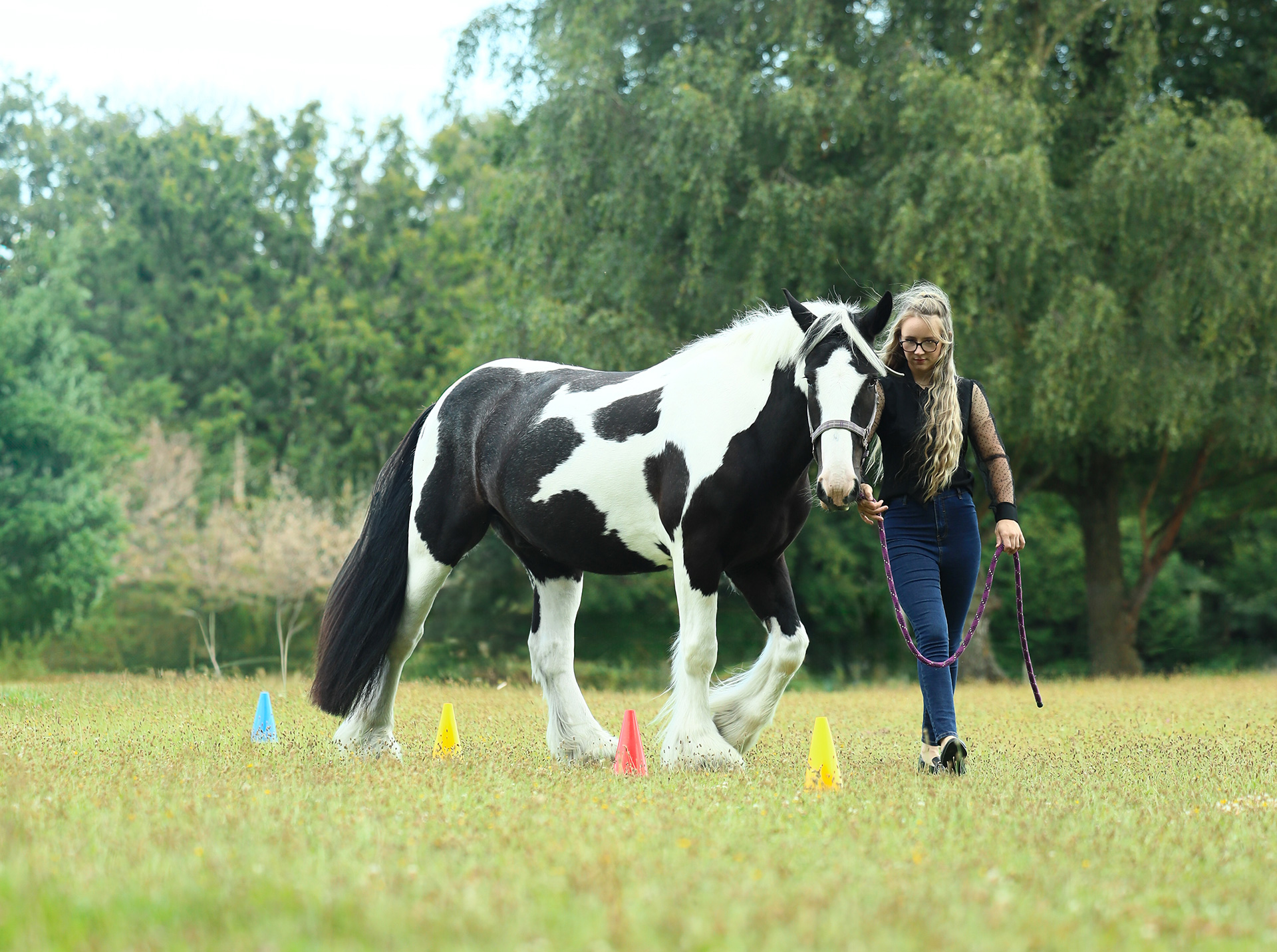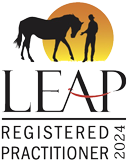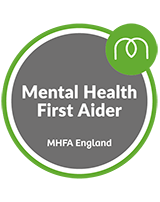“ Working with horses helps heal, empower, and transform people in powerful ways that are nonetheless very hard to explain ” - Angela Dunning, The Horse Leads the Way
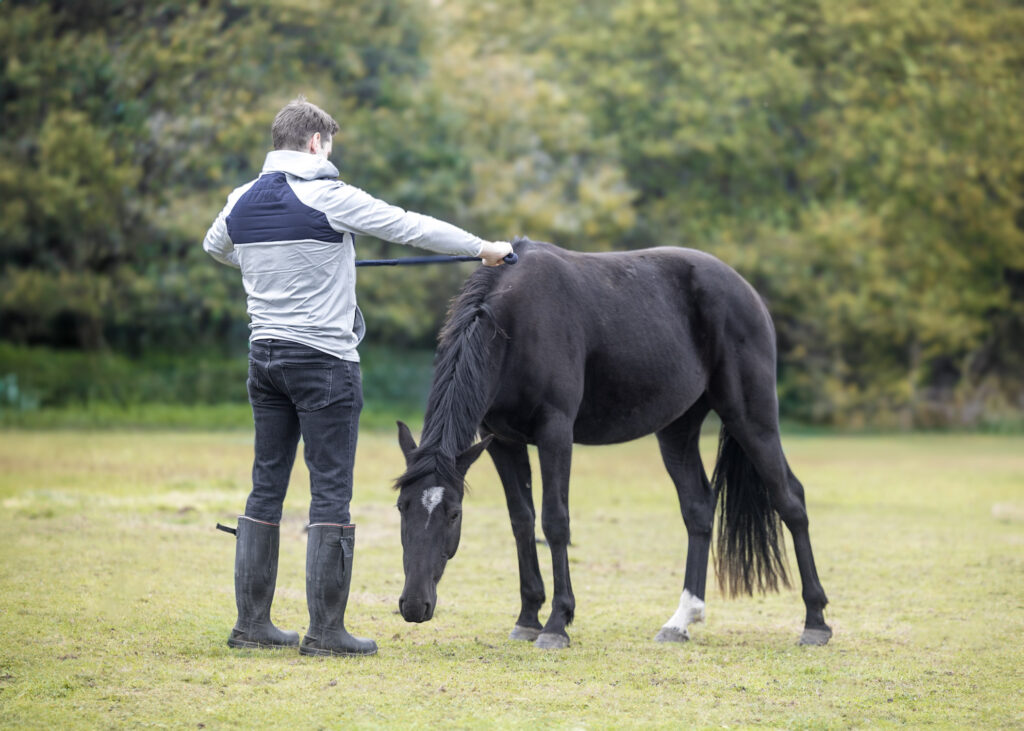
What is EFP?
Equine Facilitated Psychotherapy (EFP) involves the use of horses as co-facilitators alongside a qualified mental health practitioner to support a client in exploring their story. Sessions are client led and involve taking part in different activities with horses outdoors. They take place weekly and are typically 90 minutes long for adults and 60 minutes long for children. Usually, a minimum of eight to ten sessions is required.
Why EFP?
As humans, we are frequently distracted from our primary emotions, present-moment experiences, and our true selves, by our daily life and social constructs regarding how we should feel or behave. This may result in us feeling disconnected and unsure of ourselves, resulting in the connection between our mind and body splitting to become two separate entities. Traditional room based therapeutic approaches tend to use cognitive based methods that focus on the mind, resulting in the client being able to remain ‘stuck in their head’. However, these approaches bypass the body where our emotions reside, particularly stuck and deeply buried ones. These mind focused approaches may help, but as they don’t consider the body’s sensations and relationships to feelings, healing at the core isn’t achieved, and clients are often left wondering why their issues keep resurfacing. Conversely, EFP provides a less intrusive and challenging environment than room-based therapy due the focus being placed on the client’s interactions and relationship with their chosen horse, as opposed to the dynamic between them and the therapist. Furthermore, the experiential nature of the therapy means that insights are often faster and longer lasting than in conventional talking therapies.
“ We cannot selectively numb emotions, when we numb the painful emotions, we also numb the positive emotions ” - Brené Brown
Why horses?
As prey animals, horses are highly skilled co-facilitators, as they are highly attuned to their environment so that they can sense any danger and respond accordingly to keep them and their herd safe. Consequently, they perceive the world differently to humans and are highly sensitive to the non-verbal and emotional cues of others in their environment. They seem to have the ability to sense at a deeper level what a person’s vulnerabilities are and what they need in each moment making them very suited to psychotherapeutic work. Because horses interact and respond to humans consistent with their status as prey animals, humans can receive immediate feedback within the therapeutic space about their own behaviours and feelings in a non-judgemental way. The metaphor of a very large mirror has been used to describe how a horse can facilitate conscious attention to our feelings and behaviours thus developing our awareness of them.
Horses therefore provide clients with a safe and gentle space to explore their feelings without the need to verbalise and understand everything. Clients are supported to build connections with their chosen horse in their EFP sessions, and these relationships are often translated into their relationships with people in their lives.
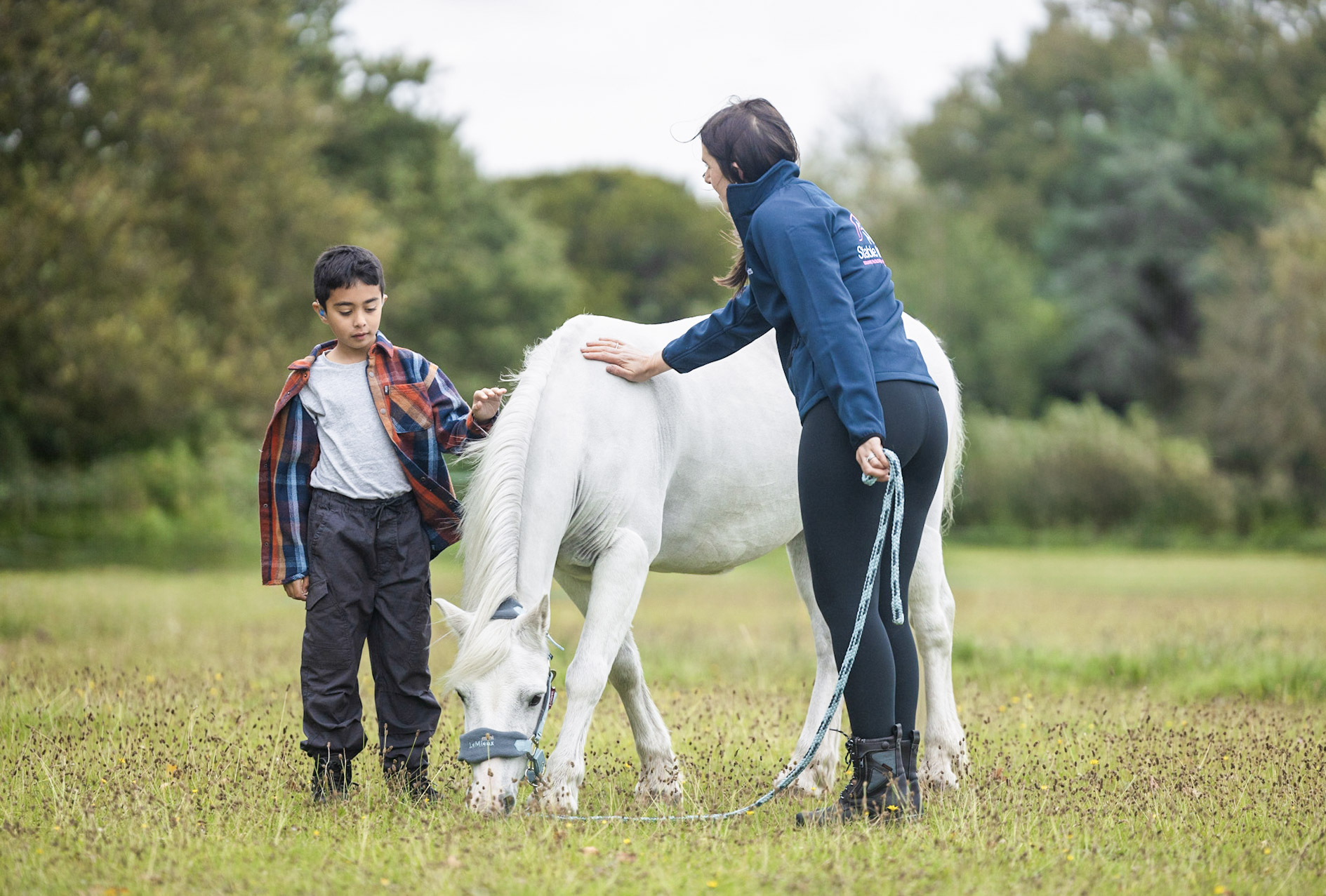
What difficulties can EFP help with?
Issues including but not limited to:
- Anxiety
- Stress
- Phobias
- Depression
- Bereavement
- Trauma
- PTSD
- Anger
- Self-esteem
- Eating disorders
- Body Dysmorphia
- Behavioural issues
- Self-harm
- Suicidal ideation
- Emotionally Based School Avoidance (EBSA)
- Neurodiverse conditions such as ASD and ADHD
What outcomes can be achieved through EFP?
Clients develop skills and benefit from improvements in their mental health such as:
- Increased emotional literacy skills, including somatic awareness and coping strategies
- Emotional regulation
- Reduction in anxiety
- Assertiveness
- Increased confidence
- Mindfulness
- Ability to develop and maintain relationships
- Empathy
- Resilience
- Impulse control
- Problem-solving skills
- Social skills
- Trust in self and others
- Psychological wellbeing
- Non-verbal communication skills
- Teamwork
- Trust in self
- Ability to self-care
